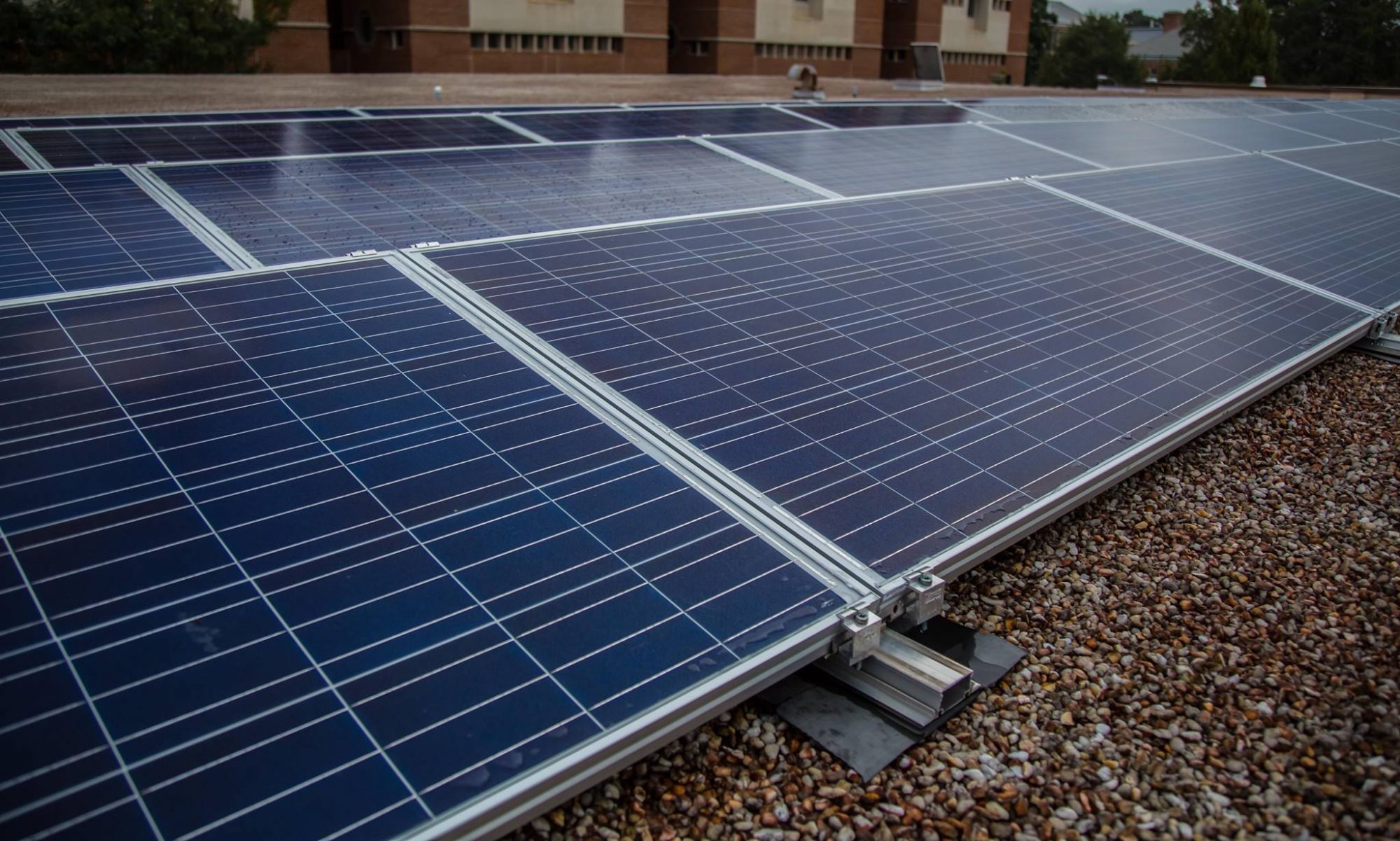This list of ways to learn about and get involved in energy on campus is brought to you by the UNC Renewable Energy Special Projects Committee (RESPC).
Energy Resources at UNC: Courses and Beyond
Energy Courses:
Non-comprehensive list.
BUSI 490: in the past there have been special topics sections on Renewable Energy Project Development Finance at KFBS; 1.5 credit hour class; provides real-world examples of financing a community scale solar project and utility scale wind project
BUSI 507: Social Entrepreneurship and Sustainability – class taught by Carol Hee, Director of the Center for Sustainable Enterprise – open to students of all majors
CHEM 395: Multiple professors have research labs focused on compounds for alternative energy and allow undergraduate students to conduct research for course credit
ENEC 210: 1 credit hour energy seminar with Greg Gangi, Fall
ENST 307: System flows. Very useful class with a big focus on energy. Jordan Kern is teaching it. 3 hours. Contact jdkern@live.unc.edu
ENST 350: Environmental law. 3 credit hours, Spring. Large focus on pollution. Highly recommended by students.
ENEC 482: 3 hours, Coastal Energy, Summer class at the beach.
ENEC 490: Energy Economics with Andrew Yates, Fall, 3 credit hours. Great class. Econ 101 pre-req, but email Yates if you’re interested and don’t meet the pre-req.
ENEC 490:001: Smart Cities with Cor Rademaker (visiting lecturer) and Arcot Rajasekar (SILS), 3 credit hours. Not totally energy focused, but it is one portion of the course. Also discusses water, transportation, etc. And partially funded by RESPC!
ENST 490H: Seminar on the Future of Energy, Greg Gangi, Spring, 3 credit hours. Communications/journalism focus.
**ENEC/PLAN 547: Energy, Transportation and Land Use, 3 credits, Fall. Undergraduate and graduate course. Learn basic mathematical equations and engineering behind solar, wind, and energy efficiency, as well as city planning for energy. Fantastic course, probably the best energy class at UNC.
GEOL 215: Energy Resources, 3 credits, Fall. Geological processes involved in forming energy resources such as oil, petroleum, etc, and delves into renewable energy types and processes.
PUBA/ENVR/PLAN 787: Environmental Finance. Spring. 3 credit hours. Covers a lot of really great renewables stuff. Undergraduates will need to be manually enrolled; contact glennbarnes@sog.unc.edu if you’re interested.
Engineering: If you want to get into engineering, look into:
-PHYS 412: Electromagnetism II, Spring, 3 credits. Pre-req: PHYS 311
-PHYS 712: Electromagnetic Theory II, Spring, 3 credits. Pre-req: PHYS 711
-PHYS 401: Mechanics I, Spring, 3 credits, Pre- or corequisites: MATH 383 and PHYS
-PHYS 722: Quantum Mechanics, Spring, 3 credits, Pre-req: PHYS 321
-PHYS 741: Statistical Mechanics, Spring, 3 credits, Pre-reqs: PHYS 701 and PHYS 721
–Also, there is a Physics and Astronomy BA with an Energy focus (http://www.unc.edu/ugradbulletin/depts/physics.html)
NC State and Duke:
We are also allowed to take classes at NC state and duke, 1 per semester. They have more offerings. If a senior is interesting in underloading, they should consider taking one of their classes at Duke or NC State.
NC State Course Catalog: https://www.acs.ncsu.edu/php/coursecat/ [ES: Environmental Science]
Beyond the Classroom:
There is a lot of value and knowledge you can gain from resources offered at UNC and in the community beyond the classroom. Faculty and community members love sharing their knowledge and advice with students.
Tour the Cogeneration plant: The Co-gen plant provides electricity and steam for heating for UNC. Touring the facilities teaches you the history of the plant and changes/progressions made, and their trials with using biomass. http://www.unc.edu/community/cogeneration_plant_sup.html
Tour Energy Management (EMCS): EMCS remotely monitors energy usage and HVAC systems on campus.
Tour the Landfill gas generator: UNC’s largest renewable project is actually a landfill gas generator which is located on Carolina North. Methane gas from Orange County Landfill waste is flared and used to generate electricity.
Alternative Spring Break: Spend your spring break installing solar panels for low-income families. Application due: November 13 http://www.gridalternatives.org/programs/solar- break/solar-break-basics
Sustainable Triangle Field Site: Local study abroad. Focuses on smart cities. Includes classes, a capstone project, and an internship.
Additional Resources:
https://www.sustainability.unc.edu/Initiatives/Academics/Teaching/Courses
